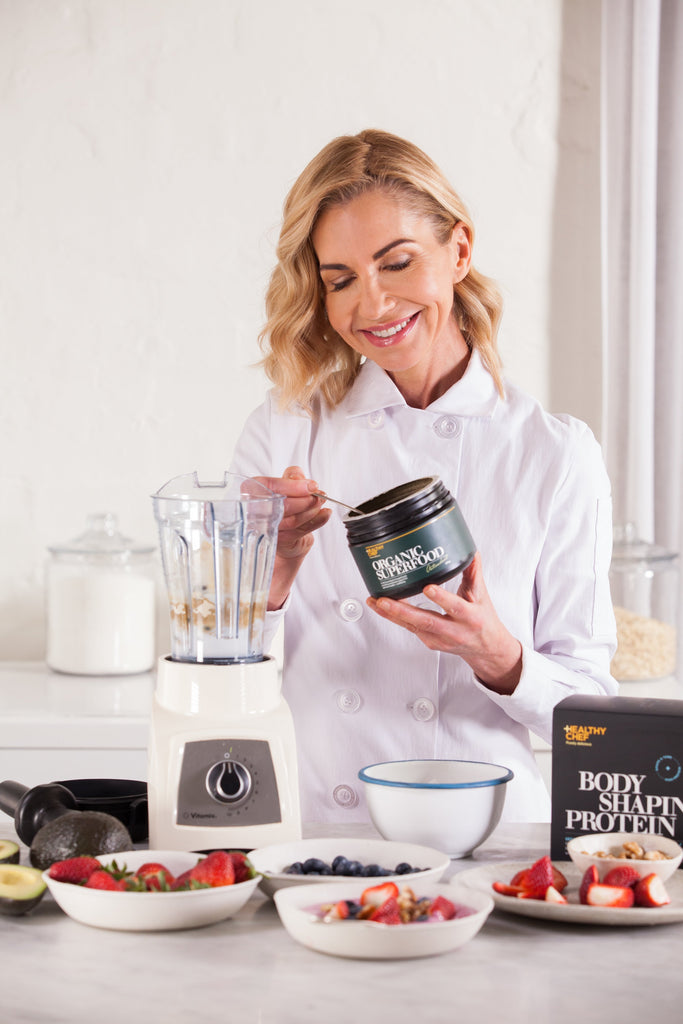Nutrition is a vital but often overlooked element of a training program. When you increase your training load, not only does this put your body under extra stress but it also increases your nutritional requirements.
BEFORE YOUR WORKOUT
If you’re exercising, it’s important that you begin your workout well nourished - but without a full stomach. Essentially you want your body to be well hydrated and have enough glycogen, so that you enter your session in the best physical condition possible.
1. Drink 500ml of water 15 – 30 minutes pre-workout
Ensuring you are well hydrated before your workout will not only help with your performance, but it will also help with your recovery.
2. Eat an optimal amount of carbohydrates for glycogen
Glucose is stored in the liver and muscles as glycogen. When we exercise the liver breaks down its glycogen and releases the glucose into the bloodstream for energy. The muscles use this glucose as well as their own glycogen that is stored in the muscle to fuel their work.
Glycogen is needed for energy and how many carbohydrates we eat, influences how much glycogen is stored. The amount of carbohydrates you need will also depend on your activity level and exercise time.
When glycogen is depleted, we become fatigued.
If you workout in the morning, you should often have enough glycogen in your system from the day before to get you through your session (unless you’re running marathons or playing professional sport). However, if you feel that you perform better with some food in your stomach, a piece of fruit like a banana, kiwi fruit or an orange 30 minutes prior to your workout will often suffice.
3. Enjoy a natural pre-workout
Drinking coffee, Organic Superfood or Organic Matcha 30 minutes to an hour before your workout results in longer endurance, faster times, less exertion, less fatigue, and more rapid recovery — up to 30 percent better in each category.
AFTER YOUR WORKOUT
After your training session, aim to kick-start the recovery process as soon as possible by munching down a snack that includes protein and some fluid. There is a window of about 1-1.5 hours where the enzymes that are involved in storing glycogen and building protein are working in overdrive, so make the most of this!
1. Eat a balanced meal or protein-rich snack
Ideally your post training snack/meal should include:
Carbohydrate – restores glycogen and improves protein absorption
Protein – repairs damaged muscle and promotes training adaptations + growth
Fluid with electrolytes – rehydrates and restores electrolyte balance
Liquid snacks e.g. protein shakes and smoothies, are a convenient way of getting protein and carbs into the bloodstream quickly after a workout, as they take less time to digest than solid food.
Enjoy a protein-rich smoothie such as my Recovery Smoothie.
If you are concerned about your energy intake for weight loss reasons, simply skip the liquid snack and move your next meal forward and eat it after your workout. This will ensure that your body still gets the nutrients needed to recover properly without the extra calories.
2. Limit your intake of inflammatory foods
When you do a strenuous workout, you may find your muscles are sore the next day. This is known as delayed onset muscle soreness (DOMS) and it’s a result of inflammation from muscle metabolism.
To avoid further inflammation in your body, it’s best to reduce inflammatory foods, such as saturated fats and processed sugars.
3. Hydrate well
Make sure to hydrate properly after your workout to counteract dehydration. Exercise sessions over 1 hour may need additional electrolytes during and after the session to help with recovery.

 Need help finding the right product for you?
Need help finding the right product for you?
